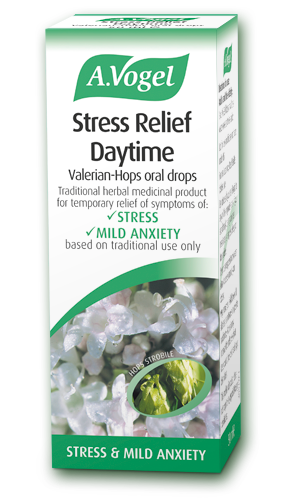What happens to the nervous system when we are stressed?
Our autonomic nervous system or ANS (part of our central nervous system) is a control system that is responsible for regulating all of our unconscious bodily functions including our heart rate, digestion, respiratory rate, urination and sexual arousal. It is divided between two systems; the sympathetic nervous system (SNS) and the parasympathetic nervous system (PNS).
Our sympathetic nervous system has a direct role in our physical response to stress and generates what is known as our fight or flight response. This is a natural evolutionary response that was designed to protect us from danger by encouraging us to flee the danger or fight – fight or flight. While historically this response held survival value to us, in present day society it is often not the most appropriate response to the situation as nowadays we are often stressed by the high demands at work or the overwhelming responsibilities of family.
There are two main types of stress; acute stress and chronic stress. Acute stress is the immediate reaction to a threatening situation. Once the threat has passed, our stress hormones return to normal levels with no long-lasting effects. Some believe that small amounts of acute stress are even beneficial to your brain’s performance. This is because adrenaline and norepinephrine are produced as a result of stress causing extreme excitement that helps you to think and move fast in an emergency. These hormones don’t linger for long though, they dissolve soon after they were created.
Chronic stress is continuous on-going stress that often isn’t triggered by danger or a life-threatening situation. Chronic stress can result in long-term damage in the body thus causing physical symptoms such as headaches and constipation, as well as general wear-and-tear. What makes chronic stress so damaging to our health and to our body is the presence of a third stress hormone called cortisol. Unlike adrenaline and norepinephrine, cortisol can linger throughout your body all day. Excessive levels of cortisol can lead to a number of physical health problems such as digestive problems, inflammation, weight gain, hormone imbalances, heart disease and diabetes.
Stress and your brain
Cortisol can also affect your brain in equally damaging ways; when the stress response is triggered the brain sends a signal to your adrenal glands to release adrenaline. Once adrenaline is released the physical symptoms of stress emerge; high blood pressure, increased heart rate and increased blood sugar levels. The brain also sends another signal, this time to the pituitary gland at the bottom of the brain signalling it to release cortisol.
We’ve already looked at some of the ways in which cortisol can damage the body but there are a number of ways it can damage the brain too. Chronic stress can kill of cells in the hippocampus as well as prematurely aging the brain. It does this by the actions of cortisol which travels into the brain and binds itself to the receptors inside neurons. This encourages the neurons to admit more calcium and this over-load of calcium causes the neurons to over-excite, fire too frequently and die off.
What’s more, a 2012 study by Yale University found that chronic stress and depression can reduce brain volume which can lead to poorer cognition and emotional function. On-going stress also halts the production of new neurons in the brain so it becomes more difficult to repair the damage that stress has caused – not good our brain health at all!
What do we recommend for stress?
 Unfortunately there is no one cure fixes all when it comes to stress, we have to take a variety of lifestyle factors into account and also figure out what our stress triggers actually are. This can take time and effort and can be frustrating, but it is definitely worth the effort. I’d recommend our stress remedy Stress Relief Daytime to help you out when things seem overwhelming. Containing extracts of Valerian and Hops this is the perfect remedy to help provide you with that little bit of extra support when you need it most.
Unfortunately there is no one cure fixes all when it comes to stress, we have to take a variety of lifestyle factors into account and also figure out what our stress triggers actually are. This can take time and effort and can be frustrating, but it is definitely worth the effort. I’d recommend our stress remedy Stress Relief Daytime to help you out when things seem overwhelming. Containing extracts of Valerian and Hops this is the perfect remedy to help provide you with that little bit of extra support when you need it most.
1 https://bebrainfit.com/effects-chronic-stress-brain/
2 http://www.youramazingbrain.org/brainchanges/stressbrain.htm
3 https://www.sciencedaily.com/releases/2016/03/160309082807.htm
4 https://news.yale.edu/2012/08/12/yale-team-discovers-how-stress-and-depression-can-shrink-brain
5 http://www.medicaldaily.com/how-your-brain-copes-stress-396019








